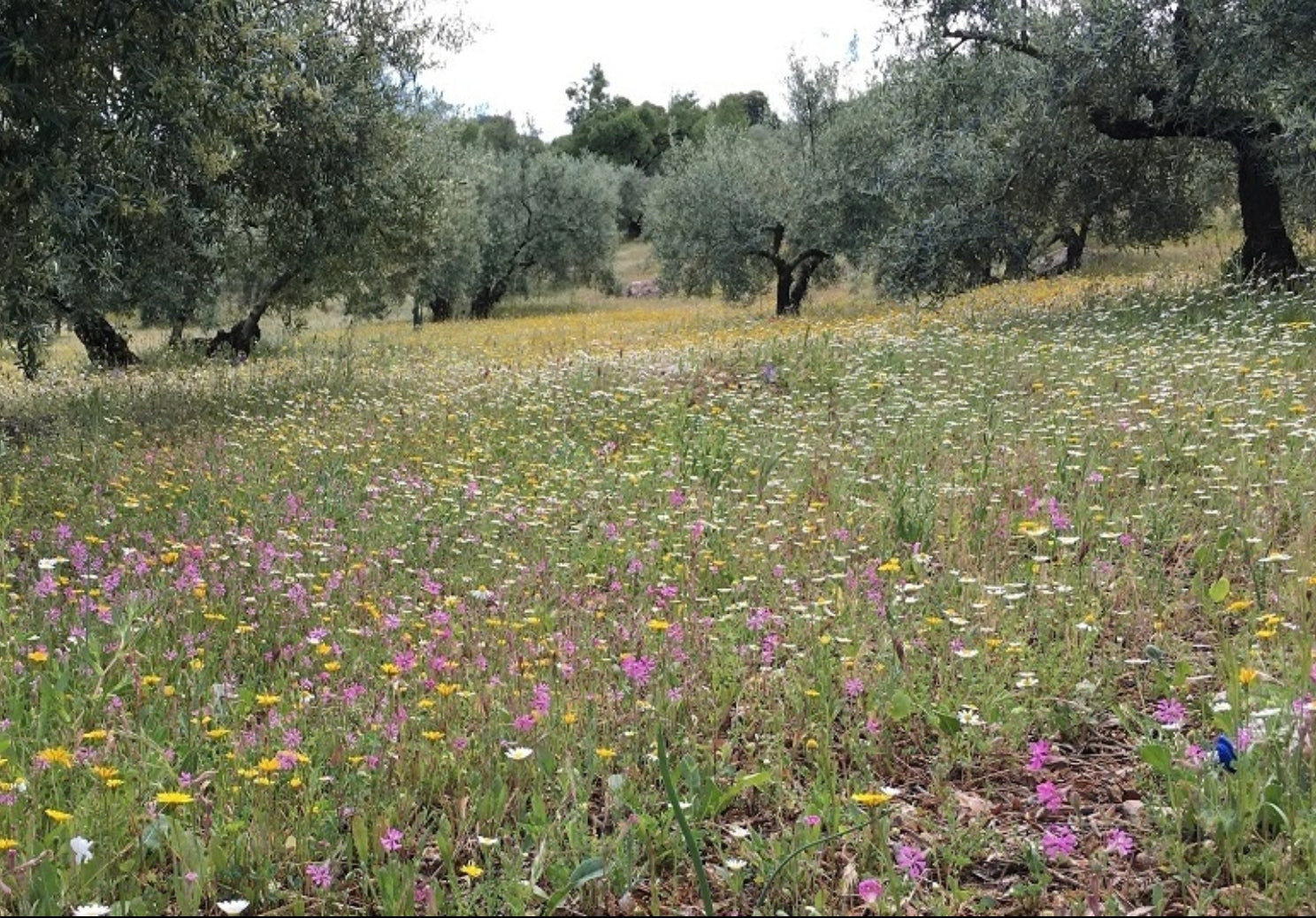Your Cart is Empty
*** Free Shipping for orders from £ 50 ***
As the numbers of environmentally conscious consumers grow, so does the demand for ethical, sustainable food products. Extra virgin olive oil - especially when produced using regenerative, traditional farming practices - is one of the most environmentally responsible choices available.
Olive trees are a permanent crop, unlike annual seed crops like rapeseed or sunflower, which require heavy use of water, fertilisers, and pesticides every year. Well-managed olive groves store carbon, support biodiversity, and require fewer resources over time.
For example, Opus oléa extra virgin olive oil is produced in a way that actually absorbs more CO₂ than it emits - up to 10 kilograms of CO₂ per litre. However, not all olive oil is created equal. The environmental impact of olive oil varies depending on farming and production methods.
The first major factor in carbon-neutral olive oil is how the olives are grown:
Low-Density Traditional Groves: Trees planted 6–8 meters apart allow for natural sunlight, airflow, and water absorption from rainfall. These groves require minimal chemical input and promote natural pollination and soil regeneration.
Location & Terroir: Sustainable groves are typically found away from pollution sources, at ideal altitudes, with nutrient-rich, well-drained soils that support biodiversity.
In contrast, high-density or super-high-density olive plantations:
Often eliminate herbaceous ground cover, increasing erosion and reducing biodiversity.

In high-quality groves, only olives picked directly from the tree are used. Ground-picked olives yield lower-quality oil and require herbicides like glyphosate to clear the soil - harmful to both the environment and health.
Traditional groves maintain natural ground cover, which:
Pruning and harvest in these groves is done manually or with electric tools, avoiding fossil fuel deposits on the trees, olives and the ground and protecting the tree structure.
Truly sustainable olive farms:
These practices not only improve the ecosystem but also enhance the flavour, aroma, and nutritional quality of the oil.
The second factor in responsible olive oil is how the oil is produced:
Extra virgin olive oil is made via cold mechanical extraction, without chemicals or heat over 25°C. This protects both oil quality and the environment.
Lower-grade oils are extracted using solvents and heat, then chemically refined to mask poor taste or condition - processes that consume more energy and cause more pollution.
State-of-the-art European mills, like the one used for Opus oléa, ensure:
Precise temperature control
Sustainable producers like us use cutting-edge methods that preserve the oil’s natural goodness while reducing waste and emissions.
Packaging matters. Supermarket oils sold in plastic PET bottles, plastic pouches or metal cans are harmful to both the product and the environment, not to mention there are numerous studies documenting that the vast majority of these never gets fully recycled and takes hundreds of years to decompose. We use recyclable UV-protective glass, which as a material is inert, to preserve oil quality and reduce environmental harm.
At Opus Oléa, we continuously improve our packaging:
When it comes to olive oil, environmental integrity and premium quality go hand in hand. Sustainable, traditional farming doesn’t just protect the planet - it produces nutrient-rich, flavourful oil that meets the highest consumer standards.
Choosing olive oil from regenerative groves means supporting:
Support better farming and better practices. Choose better oil.
